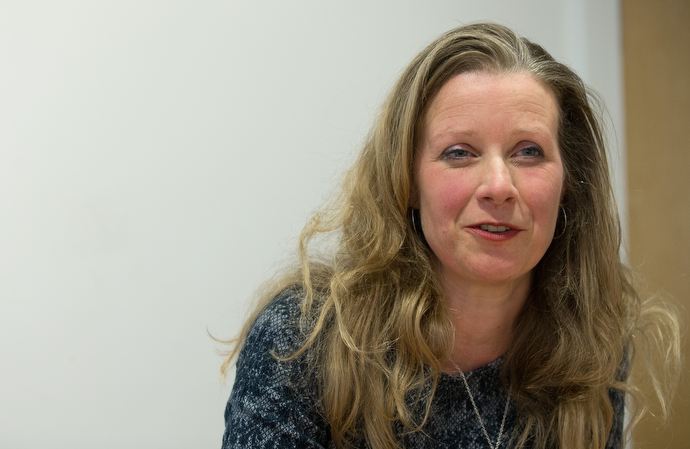The British government’s controversial new system for public assistance is having a major impact on the Methodist-run South London Mission and its clients.
“Our work’s really escalating because of the universal credit fiasco,” said the Rev. Janet Corlett, executive director of the mission and superintendent of Bermondsey Central Hall.
“We’ve gone back to Victorian Britain, where the government is just not caring for its people,” added Winnie Baffoe, who runs the mission’s “Mummies Republic” program for young mothers and is employed by the British Methodist Church.
Universal credit pulls together what used to be a number of welfare benefits into one benefit, explained Rachel Lampard, a Methodist who leads the ecumenical Joint Public Issues Team.
The major problem, she added, is that the system was designed by people who are financially secure and have family support, with a “lack of understanding of what it’s actually like to be claiming benefits” — such as creating a waiting period of up to six weeks after applying for assistance.
On a practical level, universal credit is unworkable for the clients of Mummies Republic and many other low-income families, Baffoe said, because the only way to receive critical information is through an online platform. “My mums, they don’t have data half the time,” she noted.
One mother, with a baby under 1 year old and a child in primary school, missed an important deadline because she didn’t see the online message in time. “They pulled all her benefits,” Baffoe said. “There was no buffering system. In the absence of us (the mission), I don’t know how mum would have managed.”
Lampard said there has been a “desperate sadness” as universal credit has been rolled out throughout the country. “The last group it’s going to hit is families with children, so we haven’t seen the worst of it yet.”
A new report from the Trussell Trust, showing that universal credit is pushing families into financial crisis and toward more food bank use has prompted churches to call on the British government to ensure the program meets the basic needs of families.
Although local “poverty truth commissions” are being set up around Britain to look at better solutions for dealing with poverty, such negotiations are not taking place on a national level, Lampard said.
“We think the whole issue of universal credit could have been made much less painful if the government had listened to people in poverty,” she declared. “That’s what we should be saying as a church. We all are of equal value. We shouldn’t be designing systems that punish people for being in poverty.”
That’s the kind of message the Joint Public Issues Team — representing the Methodist Church, United Reform Church, Baptist Union and Church of Scotland — can present to the public and the British government. Other parts of the team’s work are directed at the churches themselves, such as the role of Christians to speak out for justice.
Cooperating across the denominations on social issues “increases our reach significantly,” Lampard pointed out. Each year, the Joint Public Issues Team, which also collaborates with the Church of England and Roman Catholic Church, decides on a work plan in agreement with church priorities.
A recent campaign focused on the nuclear ban treaty, which, Lampard said, is both “an absolutely toxic subject politically” and a concern that’s “totally below the radar.”
Churches have supported the ban for years and want the British government to sign on to the U.N. treaty. The new treaty states that nuclear weapons, like chemical and biological weapons, are incompatible with international humanitarian law due to their indiscriminate effect.
As an educational tool, churches developed a simple film for social media, created a petition and encouraged church members and others to contact their members of Parliament.
Gambling is an issue that Lampard became personally involved with after legislation was passed in 2005 that deregulated much of the gambling industry. “As a result of that, I joined the Gambling Commission, which is the regulatory body for gambling in the UK,” she explained.
Lampard, who also was vice president of the Methodist Conference in 2016-17, served on the commission for nine years. After that, she was invited to become part of the Responsible Gambling Strategy Board, where she helps examine issues relating to preventing harm from gambling.
Noting that the public approach to gambling “has really hardened over the past decade,” Lampard said she sees potential for serious change in the right direction.
Return to main story, A century-plus committment to South London.
Read more from our series, British Methodism: Staying Relevant in Wesley’s Homeland.
Bloom is assistant news editor of United Methodist News Service and DuBose is a photographer for United Methodist Communications. Contact them at (615) 742-5470 or newsdesk@umcom.org. To read more United Methodist news, subscribe to the free Daily or Weekly Digests
Like what you're reading? Support the ministry of UM News! Your support ensures the latest denominational news, dynamic stories and informative articles will continue to connect our global community. Make a tax-deductible donation at ResourceUMC.org/GiveUMCom.

